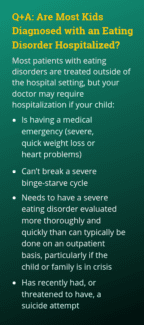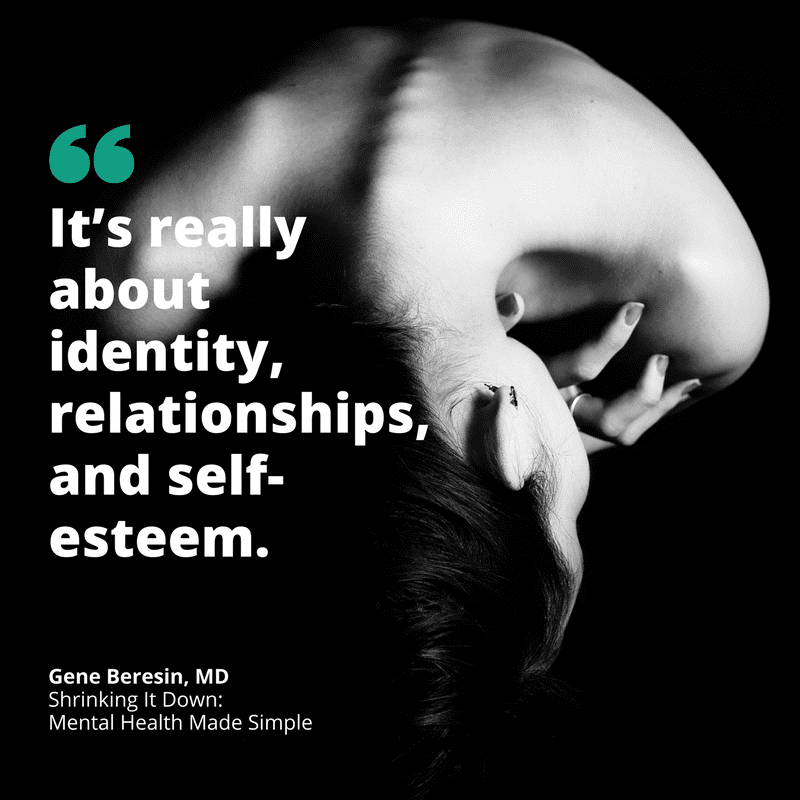Q+A: My Daughter With Anorexia Will Get Homework Assignments – What Does That Mean?

Posted in: Parenting Concerns
Topics: Mental Illness + Psychiatric Disorders, Q+A
My daughter was diagnosed with Anorexia and the therapist said we’d be getting homework assignments and using a “variety of techniques.” What does that mean?
There are a number of techniques and homework assignments that therapists use to treat eating disorders that have been found to be very effective in understanding and changing behaviors. They include:
- Food Journaling. The patient is asked to keep a log of what, where, and when they eat, as well as the thoughts and feelings they may have had.
- Educating the patient about food and eating habits. The therapist may talk about the effect of purging on the body or the cultural factors that are involved in eating disorders.

- Developing positive eating habits. Examples include not skipping meals, eating with friends and family, and learning how to healthfully respond to the body’s signs of hunger and fullness.
- Setting realistic goals. These may relate to weight gain or decreasing binging and purging behaviors.
- Improving body image. Helping the patient to think differently about their body.
- Identifying and challenging negative thoughts and feelings. Examples include, “I should be perfect,” or “I’m a loser because I couldn’t stop myself from eating the whole carton of ice cream.”
- Helping the patient to establish healthy social relationships. This typically focuses on their peers.
For more information about eating disorders and ways you can help make a difference for a young person in your life, or for yourself, please visit NEDA the National Eating Disorder Association website. #NEDAwareness

 Share
Share Tweet
Tweet





